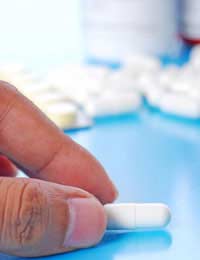Beta Blockers and Cardiac Patients

Beta-blockers (or their more complex name, beta-adrenergic blocking agents), are a group of medicines that are frequently used in the treatment of high blood pressure, after a heart attack and in the presence of a cardiac arrhythmia.
What are Beta-blockers?
Beta-blockers are a complex group of drugs given for many different conditions though primarily for cardiac patients. They act on smooth muscle among other things, which involve chemical physiological functions that we do not consciously control.Due to their action on the heart they are frequently used for fast heart rates, angina and high blood pressure in particular.As they reduce the stress on the heart and reduce its workload, the demand for oxygen supply to the cardiac muscle is lessened which also has a positive effect on the respiratory system.
How do They Work?
Part of our nervous system called the ‘sympathetic nervous system’ is responsible for controlling many of our bodily functions. Beta-blockers act on this part of our nervous system by blocking the receptor cells that cause the actions of adrenalin and noradrenalin which are essential chemicals in our body.Their action on these receptors cause the cardiac muscle to slow down and beat with less power therefore cutting its workload and putting less strain on the muscle. They also work in another way by relaxing the vessel walls which allows the blood to flow more smoothly through the body and more effectively.
There is a wide variety of beta-blockers available and your doctor will assess your condition and history and determine which type of drug will be the most suitable for your needs.
Are there any Side-effects?
Beta-blockers do have some side-effects. They are very rarely given to those with asthma as they have the ability to induce an asthma attack.Common side-effects include but are not limited to headaches, dizziness, weakness (particularly in the extremities) and cold hands and feet. These are due to a drop in the blood pressure and heart rate which are also known side-effects. Unless they are severe they are not usually dangerous and may suggest that your dosage needs altering slightly.
Other less commonly seen side-effects are a loss of sex drive and a change in lipid levels that can cause changes to your cholesterol readings. This indicates a possible need to make changes in your diet and lifestyle but cardiac patients are almost always informed that these changes are necessary to maintain the existing health of their heart or to improve it to some degree.
Never stop taking a beta-blocker as it can have a seriously detrimental effect on the heart and vascular system.
Always seek advice and guidance from your GP who will be able to assess whether your dosage will need changing or if there is an alternative type of beta-blocker that is suitable for you.
Beta-blockers are common medications and are frequently given to cardiac patients. There are many different types and dosages of beta-blockers and your specialist or GP will determine which medication you will require.


Re: What are Statins?
Kak esehiko sminor k112 cardiacmatters.co.uk
Re: Laser Surgery for Coronary Artery Disease
I was diagnosed with Idiopathic Pulmonary Fibrosis (IPF) four years ago. For over two years, I relied on…
Re: Coronary Angioplasty Surgery
My husband had a stent put in at the beginning of January. It was done at a government hospital and the doctors appointment is…
Re: Hole in the Heart: What Happens Next?
I was just in hospital with left side pain and numbness was diagnosed with hole in heart I’m home now and I’m having…
Re: Hole in the Heart: What Happens Next?
Ok I'm 61 yes old.ive been in 3 motorcycle wrecks,I have sticky platelets I've been hospitalized 3:times with blood…
Re: Why Does My Heart Beat Faster After Sweet Food?
The coffee doesn't make a heart beat faster. Caffeine makes the hart beat harder/stronger. The sugar…
Re: Hole in the Heart: What Happens Next?
Hi Doctor, My friend is having 35 years and he is having a hole in the heart, he consulted many doctors in USA and…
Re: What is Heart Block?
Hello. I have born first degree heart block. 10 years ago was temporarily changing to 2 degrees, but stay first degree. Am I at high risk…
Re: Hole in the Heart: What Happens Next?
In Sept '16 I was diagnosed with hypertension (high blood pressure) and in May '17 I had a stroke - the only symptoms…
Re: Hole in the Heart: What Happens Next?
Hi Iam 53 years old and living very healthy life. I have blood pressure but it is in normal condition with proper…